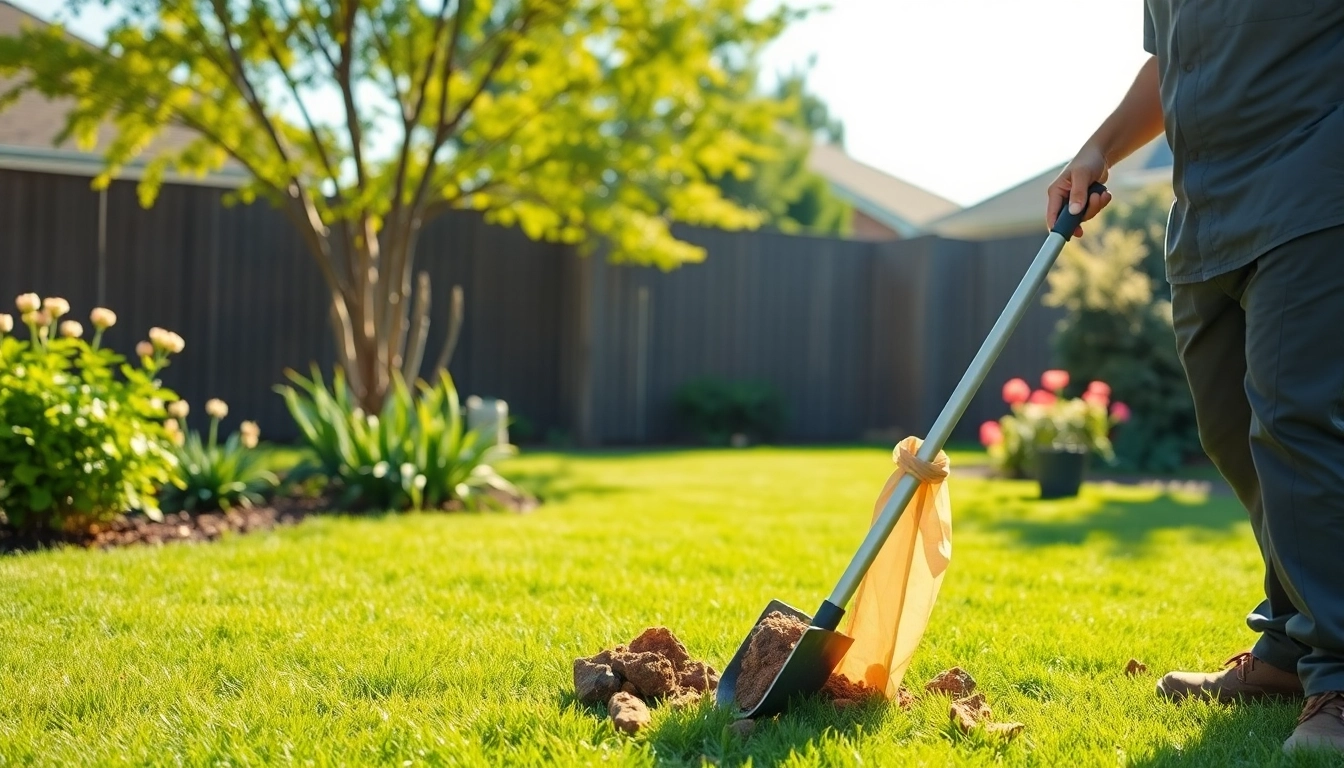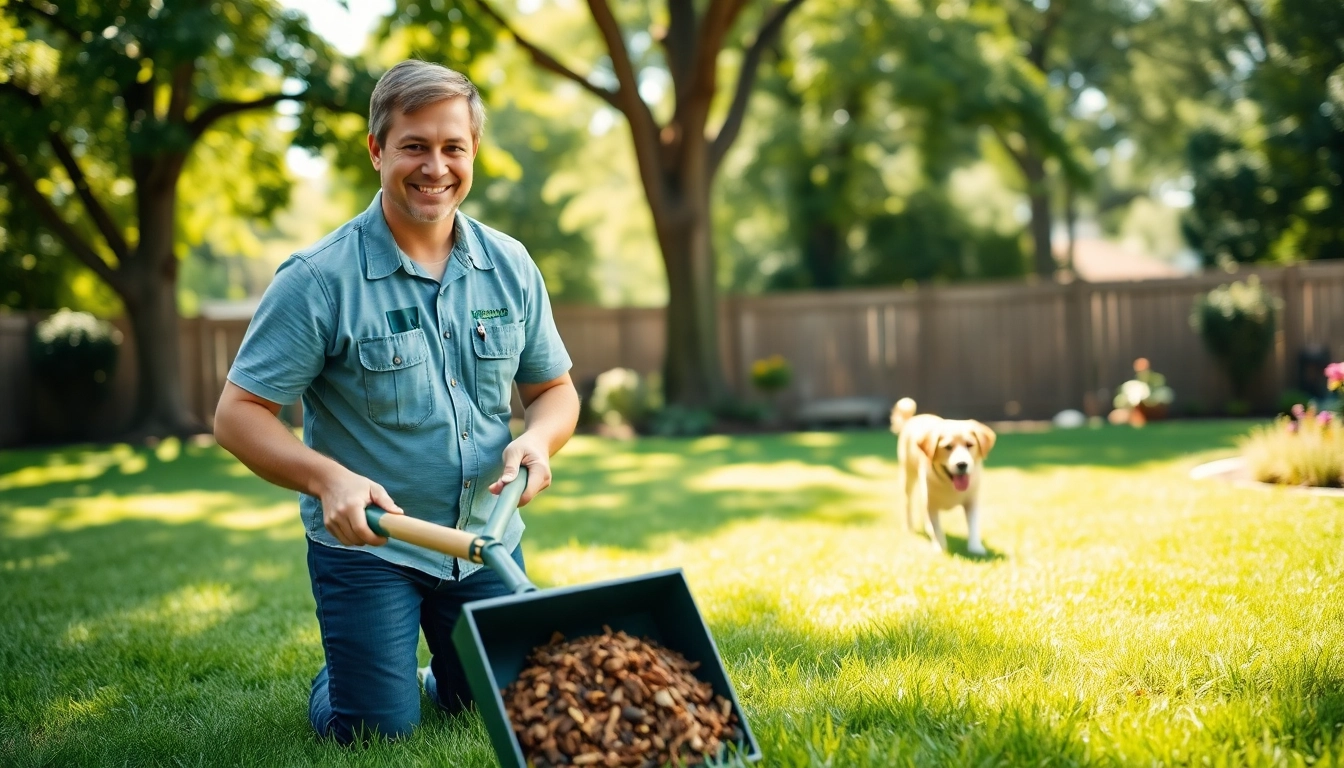Understanding Weekly Dog Poop Scooping
Maintaining a clean yard is essential for dog owners, not only for aesthetic appeal but also for health and safety. One of the best practices for effective yard maintenance is weekly dog poop scooping. Understanding the significance of regular waste removal, the associated health benefits, and how to choose the right service can transform your outdoor space into a cleaner, safer environment for both pets and families.
The Importance of Regular Waste Removal
Dog waste is more than just an unsightly nuisance; it can pose serious health risks to humans and animals alike. Regular removal of pet waste helps to minimize these risks significantly.
- Odor Control: Leaving dog poop in your yard creates unpleasant odors that can linger, affecting the overall enjoyment of your outdoor space.
- Preventing Parasites: Dog feces can contain harmful parasites like roundworms and hookworms, which can spread to other pets or even to humans, especially children.
- Protecting the Environment: Dog waste can contaminate soil and waterways with harmful pathogens, making regular scooping a necessary component of environmental stewardship.
Health Benefits for Pets and Owners
For both dogs and their human companions, regular waste removal has multiple health benefits:
- Improved Hygiene: By keeping your yard clean, you create a healthier environment for your pets to play, minimizing the risk of diseases.
- Reduced Pest Attraction: Animal waste attracts flies, rodents, and other pests, which can cause additional complications regarding health issues and pest-related infestations.
- Mental Well-being: A clean space contributes to better mental health for pet owners, reducing stress associated with managing unpleasant smells and unsightly messes.
Choosing the Right Service for You
Selecting a dog poop scooping service can seem overwhelming due to the various options available. Here are some tips to help you make an informed decision:
- Check Local Regulations: Ensure that the service complies with local pet waste disposal regulations.
- Read Reviews: Customer testimonials can provide insight into the reliability and professionalism of the service.
- Ask About Services Offered: Some services offer more than just waste removal, such as yard deodorizing and other pet-related clean-up tasks.
How Weekly Dog Poop Scooping Works
The Process of Pet Waste Removal
A typical weekly dog poop scooping service follows a systematic process:
- Initial Assessment: The service provider assesses the yard to determine the scope of work and identifies the best approach for effective removal.
- Scooping and Disposal: Using professional equipment, technicians scoop the waste from designated areas and dispose of it safely, either in your trash bin or at a specialized disposal site.
- Follow-Up Access: After the service is rendered, the company may offer follow-up visits or a subscription model for ongoing maintenance.
Pricing Models and Service Options
Pricing for dog poop scooping services can vary based on several factors, including:
- Frequency of Service: Many companies offer weekly, bi-weekly, or monthly plans, with weekly services often being the most economical.
- Size of the Yard: Pricing is typically tiered based on yard size, which necessitates more or less labor and time.
- Number of Dogs: Additional dogs may increase the price due to more waste and increased service time for larger households.
What to Expect During a Service Visit
During a typical service visit, clients can expect the following:
- Punctuality: Professional services pride themselves on being on time, scheduling visits at a time that works best for you.
- Professionalism: Expect courteous, professionally trained staff who handle your yard with care.
- Post-Service Overview: Many companies provide feedback after the service is completed, ensuring any areas of concern are addressed.
DIY Tips vs. Professional Weekly Dog Poop Scooping
Advantages of Hiring a Professional
While some may consider DIY scooping, professional services offer undeniable advantages:
- Time-Saving: Outsourcing waste removal frees up your time for more enjoyable activities with your pets.
- Expertise: Professionals are trained to remove waste in a manner that minimizes the risk of infection or contamination.
- Consistent Maintenance: Regular scheduling helps ensure yards are always clean and free of waste.
Common DIY Mistakes to Avoid
If you choose to scoop waste on your own, be mindful of these common pitfalls:
- Improper Disposal: Ensure you follow local regulations for waste disposal to avoid fines or contamination of local environments.
- Inconsistent Schedule: Infrequent scooping leads to a build-up of waste that can make the task overwhelming and less manageable.
- Overlooking Equipment: Using inadequate tools can lead to accidents; invest in specialized scooping equipment for best results.
Cost-Benefit Analysis: DIY vs. Professional
When weighing DIY against professional services, consider these factors:
- Time Investment: Calculate how many hours you spend cleaning versus the cost of a service to see which is more economical.
- Health Risks: The benefits of hiring professionals often outweigh potential health risks associated with improper waste handling as part of the DIY approach.
- Consistency and Quality: Professionals often provide a standard of quality that may be difficult to achieve individually.
Factors Influencing Weekly Dog Poop Scooping Services
Yard Size and Pet Types
The size of your yard and the type of pets you have significantly influence service choice:
- Small Yards: For smaller spaces, services can be quicker and often cheaper, requiring less time on-site.
- Larger Yards: Larger properties may require more thorough scooping, impacting pricing and the frequency of service.
- Type and Number of Pets: Multiple dogs or larger breeds produce more waste, necessitating more frequent services.
Frequency of Services: Weekly vs. Bi-Weekly
The frequency of waste removal services plays a crucial role in determining pricing and efficacy:
- Weekly Services: Ideal for busy households or dog owners with multiple pets. This is the standard recommendation for maintaining cleanliness.
- Bi-Weekly Services: Suitable for those with fewer pets or larger yards, recognizing that some degree of waste will accumulate over time.
- Emergency/Specialized Clean-Up: One-off services may be necessary during busy or specific life events, such as moving or hosting gatherings.
Seasonal Considerations for Waste Removal
Seasonal changes significantly impact dog poop scooping:
- Winter Challenges: Cold temperatures and snow can complicate the scooping process, with services needing to adapt equipment accordingly.
- Winter Preparation: Ensure pathways are clear for service providers during winter months to facilitate efficient visits.
- Rainy or Muddy Conditions: Mud can complicate access to certain yards, emphasizing the need for ongoing communication with service providers about potential weather-related issues.
Measuring the Success of Weekly Dog Poop Scooping
Client Feedback and Satisfaction Surveys
Measuring service efficacy can be achieved through:
- Post-Service Surveys: Requesting customer feedback after service visits can provide insights into areas needing improvement.
- Ongoing Communication: Positive communication between clients and providers results in tailored services that match expectations.
- Referral Rates: High referral rates may indicate overall client satisfaction with the services offered.
Performance Metrics for Waste Management
Companies should track their performance using key metrics such as:
- Response Times: Measuring how quickly service providers respond to requests for service or complaints can indicate efficiency.
- Service Completion Rates: High completion rates ensure that the majority of scheduled visits occur as promised.
- Customer Retention: A high retention rate suggests that clients find value in the services provided.
Long-term Benefits for Your Pet’s Health
Regular dog poop scooping directly contributes to long-term health benefits:
- Reduction in Parasitic Infections: Consistent waste removal helps minimize the risk of disease spread among animals.
- Lower Veterinary Costs: Preventative measures, such as regular waste scooping, can lead to fewer health issues in pets, ultimately lowering long-term veterinary expenses.
- Enhanced Quality of Life: Pets can enjoy a cleaner, safer environment, promoting better overall health and happiness.




